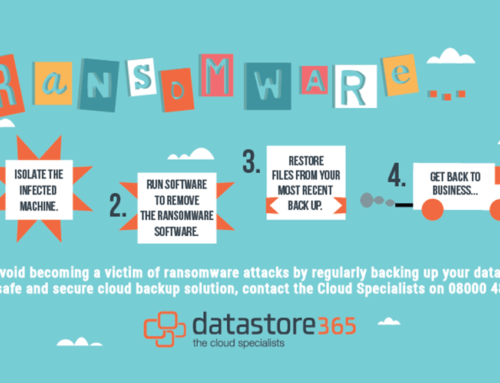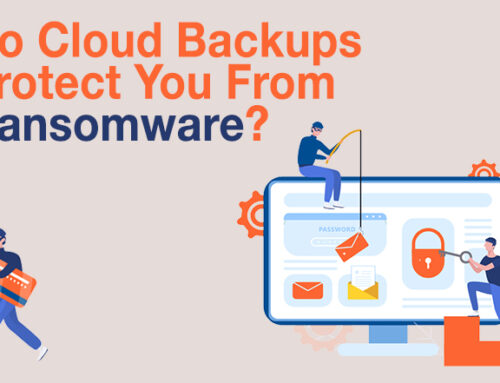‘Hackers for Hire’ Are On The Rise – Are You At Risk?

The UK’s cybersecurity landscape faces fresh new threats in the years to come, according to reports from the GCHQ. Recently, Sir Jeremy Fleming – head of the GCHQ – claimed that cyber attacks are changing rapidly, with worrying new trends suggesting that ‘hackers for hire’ are becoming more popular.
Fleming suggests that ‘shockwaves’ from the conflict between Russia and Ukraine are leading to a seismic shift in who hacks – and why. Fleming’s major concern is that these trends may encourage cyberattacks from less sophisticated sources than before – and that these attacks may increase in number and grow in severity.
What is ‘hacking for hire’?
Hacking for hire refers to the process of hiring or paying for hacks – for example, a specific body or organisation may pay an experienced attacker to launch a wide-scale onslaught on everyday people, or on other organisations.
Of these threats, reports show that ransomware appears to be the biggest concern for British businesses and operators at present. Ransomware is particularly malicious, as it effectively locks down systems and data, only freeing them when a ransom is paid to attackers. Infamously, the NHS’ systems suffered wide-scale ransomware attacks only a few years ago.
Hacking for hire is a growing concern largely thanks to the fact it’s getting harder to trace. While many blame teams around Russia for such assaults, these attacks may arise from anywhere around the globe.
Are less sophisticated attacks worth worrying about?
While ‘hacking for hire’ appears to be less sophisticated than many might expect, it’s the scale that’s worrying security chiefs. Statistics show that from spring 2021 to 2022, there were over 2.5 million individual cases of cyber fraud taking place within the UK.
That’s not to say these attacks necessarily take place wholly inside the UK, either – with concerns that international ‘hacker training’ is boosting the chances of these threats emerging from prison systems overseas.
Even low-grade attacks are worth preparing against. After all, huge data loss can still occur through simple hacking attempts. Large-scale ransomware and DDoS attacks may grab the
headlines, but simpler fraud attempts – and attacks such as phishing scams – can still devastate individual people, as well as companies.
The UK is only so prepared for cyber attacks en masse – which is why there’s such a large push to help bolster individual resources against hidden threats looming all around us.
Awareness is on the rise
What is certainly helping solidify the British cause against hackers for hire is a rising interest and awareness in cyber safety. Companies and organisations are starting to open their eyes more to the potential for data loss and cyber warfare – it’s no longer a case of thinking ‘it’ll never happen to me’.
The issue with hacking for hire – and with threats building beyond our reach – is that we can never be too sure what’s likely to emerge at any given moment. That’s why it’s crucial to ensure that we all have the resources to fight against increasing attack numbers – not just new and sophisticated threats.
Awareness is all well and good – but individuals and business owners must make sure to keep their systems and networks fortified against hidden menaces lurking in the background. This means ensuring that a solid, workable security plan is in place – and that there are backups in place to protect data in case of any widespread loss.
What can the UK do to protect itself against cyber attacks?
Thankfully, reporting from the GCHQ and other official bodies ensures we’re as up to date as we can be on the latest in the world of cyber crime. However, it’s always a good idea to protect oneself, especially when threats are as invisible and as unpredictable as they’re being advertised.
For businesses, this means ensuring they have firm relationships with network security firms to keep all their entrances and exits ‘locked’. That means not only having a healthy firewall strategy, but also ensuring a move to resources such as cloud servers and data storage. Held off-site, cloud services can provide extra layers of security to smaller businesses.
Additionally, off-site cloud security can help offices and individual users bounce back from threats. Data from customers and clients held in-house is easier than ever to replenish with a few simple clicks. This, however, is more of a cure than prevention outright.
Individuals can easily solidify their cyber defences with a series of tools – such as malware suites, VPNs, and regularly updating their programs. However, awareness of common hacking routes is just as crucial in the fight against ‘hackers for hire’.
For example, many modern hackers still access personal and business data simply by launching phishing emails – where the sender mimics a service or provider that the recipient may usually trust. While these emails are generally easy to spot, many people still fall prey to clicking on the wrong links.
There’s also the matter of social media links and data sharing. Crucially, all UK internet users need to take special care to ensure they only share information with people they trust – and that identifying details (such as passwords and security answers) are kept away from the wider web.
This can be challenging – and while ‘hire hacking’ may not be as sophisticated as large-scale attacks on corporations, they can still be highly persuasive (and therefore effective).
Conclusion
‘Hacking for hire’ is something that we should all be wary of as we approach mid-decade. Regrettably, cyber-attacks are always going to evolve – whether in sophistication or simply by pivoting to new routes and avenues.
As such, individuals and business owners must take more time to learn about how cyber-attacks may befall them. Just having a simple antivirus and firewall isn’t enough!
The best plan of defence against evolving cyber attacks is to trust no one with your data, to ensure you have backups, and to continually update your hardware and network security with a trusted provider. Beyond this, it’s always wise to try and move to the cloud!





